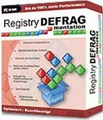日本語
毎日 通常購入しなくては使用できないソフトウエアを無料で提供します!

$24.95
期限切れ
Giveaway of the day — Advanced Registry Doctor Pro 9.2
Advanced Registry Doctor Pro - fix your registry and improve your PC's performance!
$24.95
期限切れ
ユーザーの評価:
280
コメントを残す
Advanced Registry Doctor Pro 9.2< のgiveaway は 2010年4月12日
本日の Giveaway of the Day
ファッショナブルで洗練されたスタイルの多様なセレクションで画像を強化する
Advanced Registry Doctor ProはPCのパフォーマンスを向上させるプログラムでスキャン、複数レジストリー問題などを処理して稼動スピードを改善。高度設定によるレジストリー整理、スケジュール、バックアップ、回復機能なども提供。
レジストリーの問題をフォローアップしてアプリケーション過程、COM/ActiveX、ヘルプファイル、ファイル・エクステンション、フォントフファイル、DLLsフォルダー、稼動プログラム、Windows/MS-DOSショートカットなどを管理。初心者でも簡単に使用でき、アドバンスユーザー向け設定も提供。
必要なシステム:
Windows XP/Vista/7 (32-bit and 64-bit)
出版社:
Elcor Softwareホームページ:
http://www.elcor.net/ard.phpファイルサイズ:
5.40 MB
価格:
$24.95
他の製品
GIVEAWAY download basket
Developed by Informer Technologies, Inc.
Developed by IObit
Developed by Garmin Ltd or its subsidiaries
Developed by ArcSoft
iPhone 本日のオファー »
Use the power of AI to do math, write an essay, perfect your grammar, ace any test, and study smarter.
$39.99 ➞ 本日 無料提供
$9.99 ➞ 本日 無料提供
Need help finding scrap metal? Scrap Maps is your convenient and complete guide to recycling!
$0.99 ➞ 本日 無料提供
$0.99 ➞ 本日 無料提供
$9.99 ➞ 本日 無料提供
Android 本日のオファー »
Xproguard Anti-Theft is an anti-theft app to secure your device and keep it safe from intruders.
$104.99 ➞ 本日 無料提供
In SPHAZE, you will manipulate impossible mazes and guide mysterious robots through stunningly beautiful worlds.
$2.49 ➞ 本日 無料提供
$0.99 ➞ 本日 無料提供
$0.99 ➞ 本日 無料提供
$6.49 ➞ 本日 無料提供




コメント Advanced Registry Doctor Pro 9.2
Please add a comment explaining the reason behind your vote.
The Good
* Has full registry management features (scan, repair, defrag, backup/restore).
* You can undo the 'repair' or 'fixes' you make.
* Ability to apply tweaks to Windows.
* Has preemptive protection against malicious ActiveX malware.
* There is a startup program manager.
The Bad
* A bit buggy.
* You cannot choose individual Windows tweaks to apply. It is all or nothing.
* Registry backup files are not self-executing (you must have a program that supports the backup format to restore your registry).
* You can only undo one 'fix' or 'repair' at a time.
* By default automatic backup of registry is not made before any 'fix' or 'repair'.
* Developer displays semi-scareware Premium Booster advertisement during installation of Advanced Registry Doctor Pro.
Free alternatives
WinUtilities Professional Edition
TuneUp Utilities 2008
WinOptimizer 2010 Advanced
For final verdict, recommendations, and full review please click here.
Save | Cancel
Beware! The last part of the setup program directs you to a web site Premiumbooster.com, and it did some keylogging actions. It is not sure if this install is safe and truful! I blocked it and the install got stalled. If you cancel the install and exit the setup at this point, the program is still install ok. I do not really like a company which deploys such keylog ways for marketing purpose!
Save | Cancel
Found 300 errors. Program expects me to sit there and delete each one, as if I know what ramifications of the delete will mean. It is a dunbass poorly designed piece of crap program. No wonder they are giving it away. It belongs in the pile, "can't give it away."
Save | Cancel
Installed and activated fine on WinXP SP3.
Application hang when attempting to run a scan (tried this twice without success). Had to use TaskManager to close the application.
Save | Cancel
The developer, Elcor Software, is completely upfront about what their registry software can do [http://www.elcor.net/registry_repair_faq.php] -- in this day/age of completely exaggerated claims, I think their honesty is refreshing.
If you've ever found a dead link on a web page, or a bookmark in your browser that no longer works, you know how Advanced Registry Doc Pro -- & every other registry repair utility -- works. Some are more aggressive than others, but all of them look for broken *links* in Windows' registry, e.g. a registry key pointing to something that doesn't exist, or in some cases, keys that point to nothing at all, when they should point to something. Deleting garbage entries makes Windows' registry's physical size smaller -- compare how long it takes Notepad to open a 1 KB file vs. ~2,000 KB file & it's obvious the bigger the file size, the longer it takes Windows to read it.
Catch #1... it takes an awful lot of registry entries to amount to a size reduction you can see, & even more to make you sit up & take notice... I recently tried to get rid of all references to an app I was upgrading, deleting almost 2,000 keys [not something I'm anxious to do again] -- the before/after ERUNT backups [with all registry files in the same folder] showed I got rid of less that 3 MB out of ~72. To better the odds that you'll notice an improvement, registry cleaners like to also go after different caches -- more-or-less long lists the registry stores that are always changing. It's not uncommon to *flush out* several hundred entries just starting the install routine for most apps -- when you double-click a GOTD setup.exe file [or any other setup.exe file], before anything much happens, you might have already lost 300 - 600! The thing is, that can happen every single day... obviously Windows is always busy rebuilding these lists, so any gains from cleaning out these caches are *very* temporary.
Catch #2... Advanced Registry Doc Pro can look for files that aren't where the registry thinks they are. When a bookmark doesn't work in your browser, you can use Google/Bing to try & find the site again -- you might get loads of hits, but which one is the right one, if it still exists? I don't know about you, but in my experience more often than not the original's no longer there. When registry cleaning/repair software searches for missing files, it's more or less the same thing... Yes, you could have accidentally moved a file &/or folder, but how many people actually move program folders around in the 1st place, so they could have accidentally misplaced one? In my experience when registry cleaning/repair software looks for a *missing* file & finds a match, it's either a duplicate file name, or the registry entry was left behind after a software uninstall or upgrade. If the found file is a different version, it *may* be completely incompatible. If it was left behind, or if the duplicate file's an exact match, likely no harm, but, if my system has been working fine, & an entry's been pointing at nothing all this time, I'll just delete the entry rather than waste time trying to fix what isn't broken.
Catch #3... When it can take thousands & thousands of lines of code to write even a simple looking app, it's extremely rare to start over with a clean slate when the developer upgrades/updates that app. When they add onto the code base old portions that are no longer used might remain in place -- it's more common with larger developer teams, & after all, what harm can it do? And/or, a developer might license code from someone else, & not use every option that code includes. In these 2 scenarios (& possibly many others) there might be registry entries that serve no current purpose, but the software checks & won't work without them. Quality control testing wouldn't include: "What happens if the user deletes these registry keys"? SO deleting any registry keys/values is inherently risky. It's like the old Clint Eastwood line: "Do ya feel lucky..."? Back up 1st.
ERUNT is a nice, free app to backs up your registry, & can restore a backup even when Windows won't start -- in those cases you still need to be able to get to the backup folder, so read the docs & make sure you'll be able to. In Vista & 7, System Restore has the benefit of keeping a copy of everything -- cool since in Vista & 7 your system's state isn't only stored in the registry. I spend an extra 2 - 3 minutes & do both... redundancy is good.
Save | Cancel